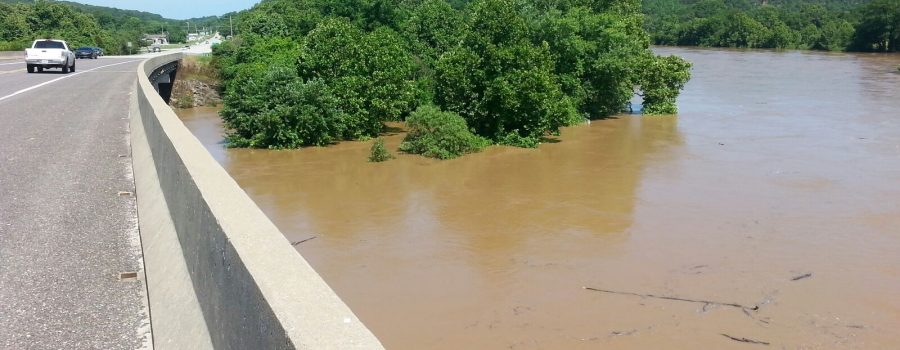Be careful returning to flood-damaged homes, Missouri Department of Health and Senior Services says
The Missouri Department of Health and Senior Services urges Missourians to take extra precautions when returning to flood-damaged homes, apartments or businesses during clean-up efforts. The dangers are not over after the water goes down.
“Please be careful as you return to your homes as gas pipes, power lines and structural damage can cause life-threatening injuries and fall risks,” DHSS Director Dr. Randall Williams said.
Flood hazards such as a weakened foundation, exposed wires or contaminated floodwater are not always obvious and can be life-threatening. Always follow instructions of emergency personnel as to when it is safe to return. Following the tips below will help ensure safety after the storm.
- Turn off the electricity and all other utilities before going inside to prevent electrocution, gas leaks and other issues. Even if the power company turned off electricity to the area, be sure to shut the power off in your home. Do not use appliances or motors that were wet, unless they are taken apart, cleaned and dried.
- Call the electric or gas company immediately if you find downed power lines or suspect a gas leak. Look for outside damage, such as cracks in the foundation or gaps between stairs and the house. If you see damage, have a building inspector check the house before entering.
- Be alert for gas leaks – do not strike a match or use an open flame.
- Look before stepping into your home. Floors and stairs can be very slippery.
- Discard refrigerated food if power was out for at least four hours or if the refrigerator door was opened during a power outage.
- Throw away food if there is any chance it came into contact with flood water.
- Discard wooden cutting boards, plastic utensils, baby bottle nipples, and pacifiers.
- Use bottled water that has not been in flood waters. If bottled water is not available, boil any tap water before use.
- Get a booster tetanus vaccine if you have not had a dose within the past 10 years or are unsure of the last time you had one. If you get a deep cut or puncture wound, seek immediate medical attention and ask about a tetanus booster.
- Be sure to wear proper clothing and safety gear when cleaning up after a flood.
- Immediately clean all wounds and cuts with soap and clean water.
- Control moisture in your home to prevent mold growth. Use a disinfectant (one-and-one half cups household bleach in a gallon of water) if needed, and especially if the water damage occurred because of floodwaters or sewage backup.
- Tip and toss any water pooled in outdoor containers to avoid mosquito breeding grounds.
For more information regarding flood recovery, go to http://health.mo.gov/living/environment/floodrecovery/index.php.

